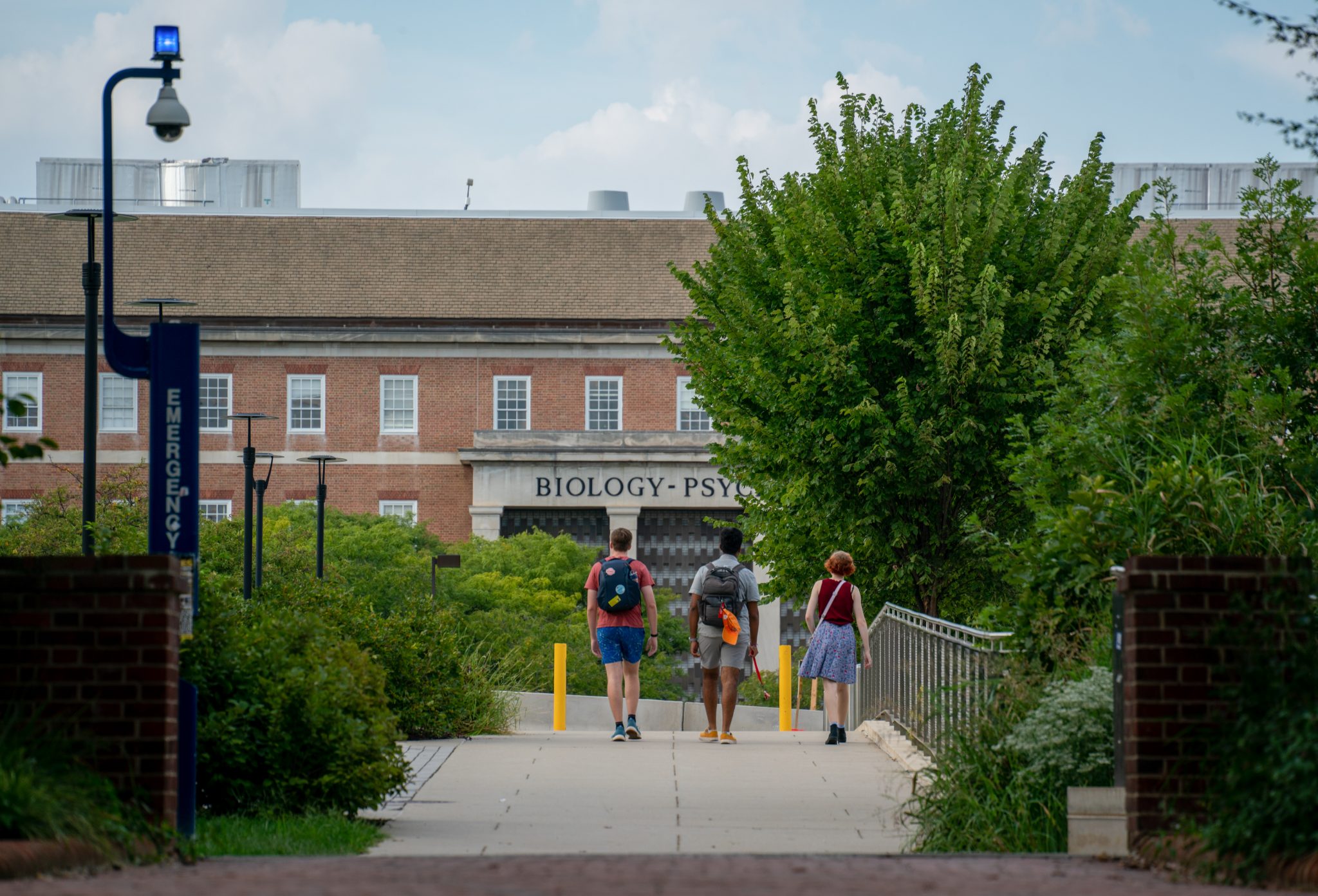University of Maryland education professor Diane Jass Ketelhut was helping teachers integrate computational thinking into their science lesson plans in a way that worked for students.
She was nearing the final stages of her work, where her team was supposed to bring its findings together into final reports for the National Science Foundation. Then, while at a conference with the teachers her team was working with, Jass Ketelhut was notified that her grant was terminated.
Jass Ketelhut was one of multiple professors at this university who lost their National Science Foundation research grants within the last month. The foundation has been stripped of much of its funding due to U.S. President Donald Trump’s administration’s cuts, which have impacted research universities nationwide.
“Effective immediately,” Jass Ketelhut said, recalling the moment of her grant’s termination. “It’s like you walked into your job and your boss met you at the door and said you can’t go into your office to collect anything. You’re done, turn around and walk away. That’s the way it felt.”
At least 14 National Science Foundation grants funding researchers at this university have been terminated as of May 12, according to the Grant Watch database compiled by a team including a Harvard University researcher. Data is collected from submissions, government websites and federal databases, according to Grant Watch’s website.
The National Science Foundation grants make up a part of the 70 grants — totaling about $12 million — that have been cancelled or paused at this university since Trump returned to office in January, according to university president Darryll Pines. The grants, Pines said, also came from the National Institutes of Health, the Department of Education and other agencies.
[Maryland Democrats unite against Trump’s proposed federal budget cuts]
Many researchers were left with little to no information about why their grants were terminated, leaving them to guess what went wrong. Katie Shilton, a professor at the information college, said she was told that her work no longer fit with agency priorities — which multiple other professors were informed of as well.
“That’s all we got, so we just have to speculate,” Shilton said.
Shilton was working with a group of other researchers creating a content moderation tool for online groups and forums. The tool would have catered to each online community and flagged items that could have broken the group’s rules, such as sharing homework answers or spreading misinformation.
She suspects that her project’s grant was cancelled because her work deals with misinformation, which she said is a common thread among other National Science Foundation grants cancellations for computer science and engineering-related projects.
Trump has argued that regulating misinformation violates free speech, such as in a Jan. 20 executive order. Shilton said her research was just trying to help make moderators’ jobs easier by helping flag content that didn’t abide by a forum’s rules.
Now, nearing her project’s end date at the end of the summer, Shilton and her team have found themselves without a clear way to move forward.
“I have no idea how we’re going to finish,” Shilton said.
Multiple other professors told The Diamondback they suspect their grants were cancelled due to the use of the words “diversity, equity and inclusion,” in their research.
This includes Scott Wolpert, a professor emeritus in this university’s mathematics department and a senior consultant at a post-secondary education mathematics advocacy group who was researching how to improve student success in mathematics. These words, he said, were used about 30 times in his proposal.
“These are virtually prohibited words, as far as the Trump administration’s concerned,” Wolpert said.
Some professors said they want to continue their work, but are struggling to figure out how they can afford to push forward.
Jass Ketelhut, the researcher working with science teachers, said she was told to submit a final report to the National Science Foundation after receiving her stop work order. Even though she wants to finish this project to help children, she doesn’t want her and her colleagues to work for free and only has the next two months before her retirement.
[Here’s a look at Trump’s recent executive orders targeting education]
“We should always have children’s best interests at heart, and I don’t think we do right now,” Jass Ketelhut said.
Several professors also pointed to the impacts this funding loss has on their graduate and undergraduate student workers as well as researchers with less job security.
“This is not just about people not getting money or some such thing,” Jass Ketelhut said. “There are careers at stake.”
In an interview with The Diamondback, Pines said individual colleges are making an effort to try and fund graduate students through the end of their degrees.
This university’s research division and general counsel’s office are working to appeal terminated grants on a case-by-case basis, vice president for research Gregory Ball wrote in a statement to The Diamondback on Tuesday. Ball said the university is encouraging researchers to still apply to grants from the National Science Foundation and other agencies.
Niambi Carter, an associate professor at the public policy school, said the drive to do research and for knowledge is “baked into” academics, but that it will require researchers to be inventive with how to move forward.
Carter’s research focused on the public’s political beliefs and attitudes about “elites.” Her grant expired last fall, but her team applied for an extension at no additional cost to include information from the 2024 election. She received an order to stop work less than a week before her deadline.
“This is just a sad day, not for our universities but our country,” Carter said. “There’s so many people who will now know less because the research funds are not there.”
News editor Natalie Weger contributed to this story.



